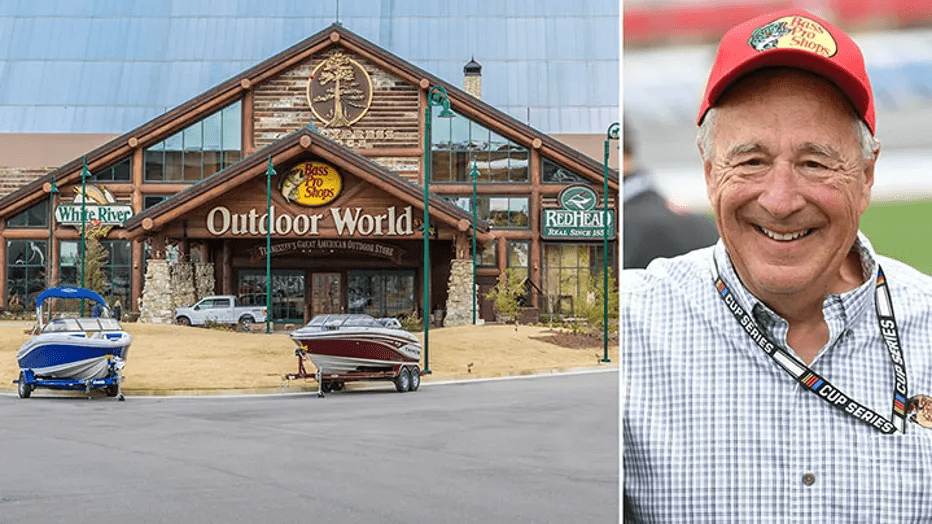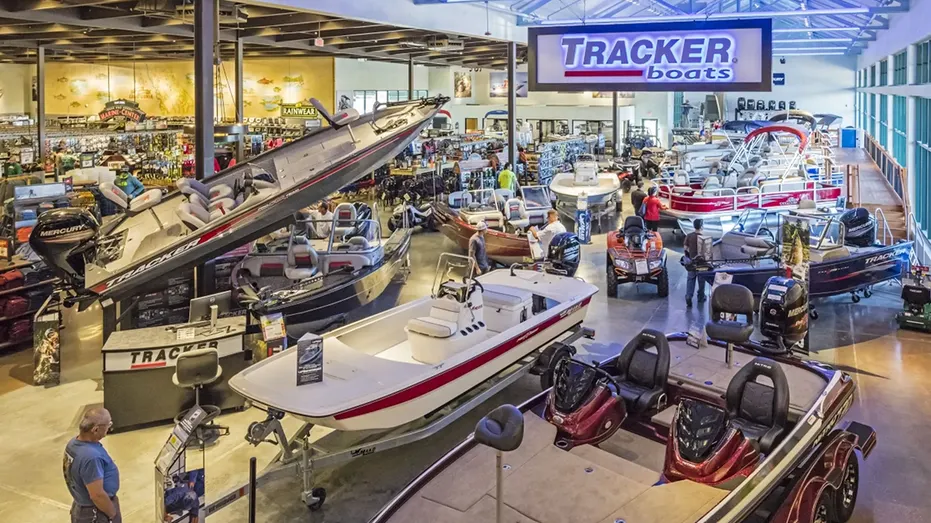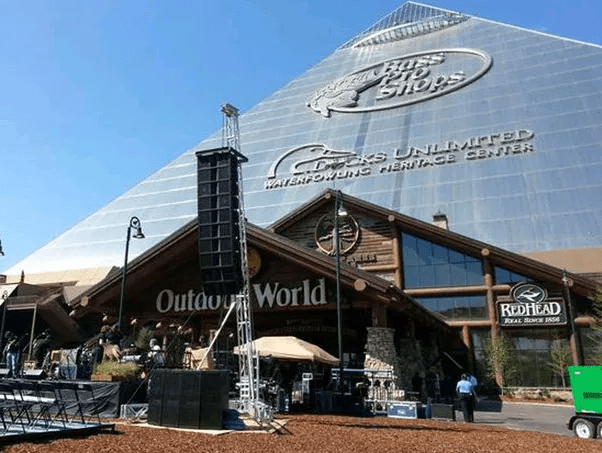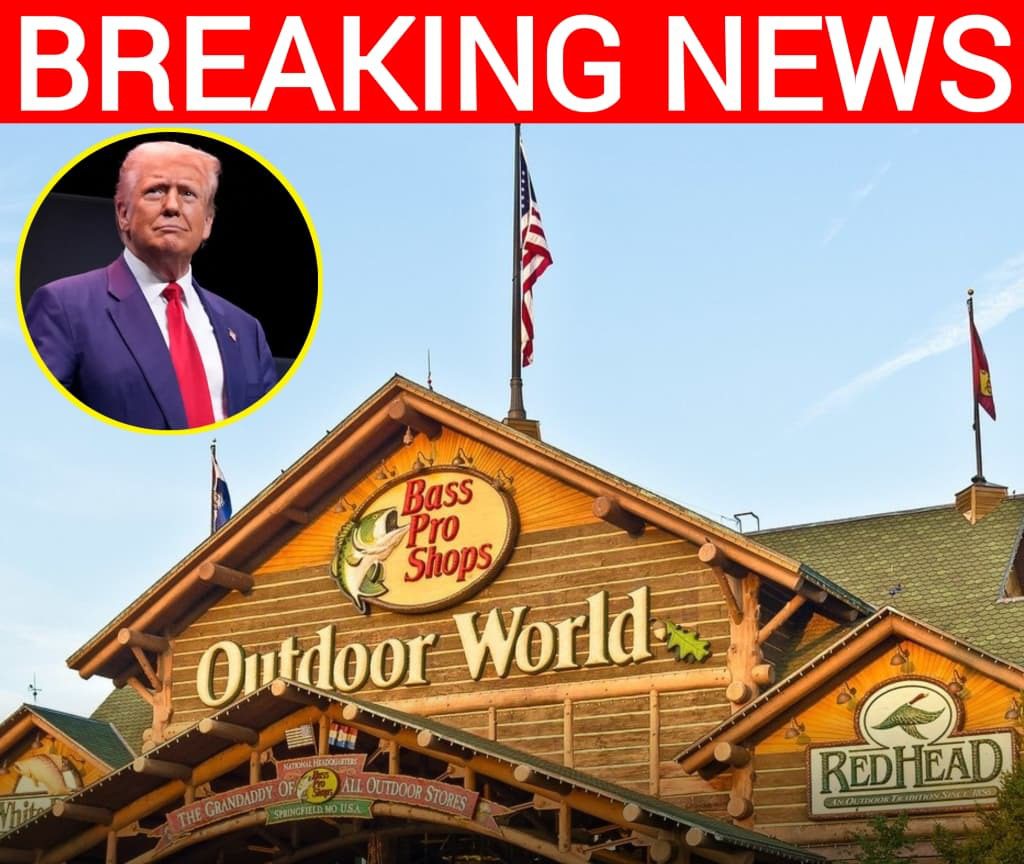Bass Pro Shops Moves Production from Mexico to Missouri After Acquiring Hobie, Marking a Major Win for Trump’s “America First” Economic Push
Bass Pro Shops has announced a major shift in its operations that is already making headlines. After acquiring the sports brand Hobie, the company is relocating production from Mexico to Lebanon, Missouri. The move represents not only a homecoming for the brand but also a symbolic moment in the ongoing debate over American manufacturing, jobs, and trade. For many, it stands as another sign of President Trump’s economic influence and the continued push behind his “America First” agenda.

The decision to shift production back to the United States reverses a trend that has defined much of the past few decades, where companies looked overseas to cut costs, often at the expense of American workers. According to a 2021 analysis from the BlueGreen Alliance, U.S. manufacturing jobs had declined by more than 200,000 during Trump’s first term, even as he pushed policies to bring jobs home. Since 2021, the Biden-Harris administration has claimed credit for adding 775,000 manufacturing jobs, highlighting just how politically charged these numbers can be. Yet, the Bass Pro Shops announcement gives Trump supporters a fresh example of his policies bearing fruit, even beyond his time in office.

This move is especially significant given Bass Pro Shops’ history. Founded by Johnny Morris in the Missouri Ozarks, the company has always tied its identity to the American outdoors. Shifting production back to Missouri not only fits the company’s roots but also sends a clear message about its values. At a time when consumers are becoming more vocal about wanting to buy American, the decision feels in line with broader cultural shifts. A 2023 survey from Consumer Reports found that 67% of Americans said they were willing to pay more for products that were made in the U.S., a powerful statistic that may have played into Bass Pro Shops’ thinking.
Economists see the move as part of a larger story about tariffs, trade policy, and incentives. A 2019 study by the National Bureau of Economic Research found that every 10% tariff increase could boost domestic employment by about 1.4%, though it often came with the downside of higher consumer prices and trade tensions abroad. Critics of Trump’s tariff-heavy approach argue that while some jobs are saved or brought back, the overall cost to consumers can outweigh the benefits. Supporters, however, see stories like Bass Pro Shops as proof that the policies work, creating real opportunities for American workers and stabilizing industries that had long been in decline.

It’s also worth noting the emotional and symbolic weight of this change. For many people in Missouri, the return of manufacturing jobs means more than just numbers on a spreadsheet. It represents pride in local work, stronger communities, and a renewed belief that global corporations can still prioritize American workers. For Bass Pro Shops, which has built its brand on tradition and authenticity, this decision enhances its credibility with customers who value not just the products they buy, but the story behind how those products are made.
The broader economic context is complicated, with both sides of the political spectrum quick to claim victories or point out failures. But in the case of Bass Pro Shops, the narrative is straightforward enough to resonate with many Americans: jobs that had been moved abroad are coming back home. Whether you view it as a political win, a business strategy, or simply a reflection of consumer demand, it is a reminder that the debate over globalization, trade, and domestic production is far from settled.

As 2026 approaches, with its national celebrations of America’s 250th anniversary, stories like this will no doubt be held up as examples of what it means to invest in the country’s future. For now, Bass Pro Shops is making headlines not just for outdoor gear, but for helping redefine the landscape of American manufacturing in a time when every job counts.


